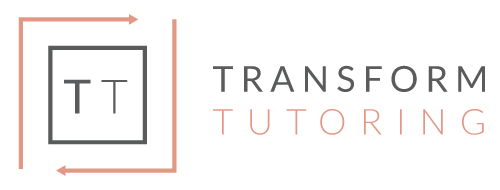Decisions are made with
Emotion
Intellect
Time
All three we rely on and are aware of as we make choices in our daily lives, especially when taking or studying for a test. You can feel an adrenaline rush, emotional highs of getting a question right, and emotional stress of confusion. We depend on our knowledge and skillset to answer questions, and we are typically alert to what we do or do not know. When we have defined time constraints we understand how long we can work and feel pressure to make choices in a timely manner.
That being said, what we are often unaware of are the biases or fallacies that influence our decision making. What do we make of these and what are the common types to have on our radar?
A cognitive bias is a systematic pattern of deviation from norm or rationality in judgment. Individuals create their own "subjective reality" from their perception of the input. An individual's construction of reality, not the objective input, may dictate their behavior in the world.
A fallacy is reasoning that is logically incorrect, undermines the logical validity of an argument, or is recognized as unsound.
IN TEST
Plan continuation bias - Failure to recognize that the original plan of action is no longer appropriate for a changing situation or for a situation that is different than anticipated.
EXAMPLE: The clock is running out on the last section of a reading test. You typically read the passage first then go to the questions, but you would be able to answer more questions by just going to the questions immediately. Despite the new circumstances you stick with the initial strategy that is less efficient.
Non Adaptive Choice Switching - After experiencing a bad outcome with a decision problem, the tendency to avoid the choice previously made when faced with the same decision problem again, even though the choice was optimal.
EXAMPLE: A math problem typically follows a common process. You performed it correctly with a minor computation error that wasn’t caught so your answer is not one of the options. You misdiagnose the mistake as a process error and avoid using it the next time the problem time shows up, thus missing another question.
Gamblers fallacy- The tendency to think that future probabilities are altered by past events, when in reality they are unchanged. The fallacy arises from an erroneous conceptualization of the law of large numbers.
EXAMPLE: I've answered A for the last 4 questions, there’s no way that the 5th question can also be A.
Sunk Cost Fallacy - The phenomenon whereby a person is reluctant to abandon a strategy or course of action because they have invested heavily in it, even when it is clear that abandonment would be more beneficial.
EXAMPLE: I’ve spent 5 minutes using this process to solve a problem. I can tell that it’s not leading me to the right outcome I typically see, but I refuse to start over given my investment of time.
Historical Fallacy – Believing that certain results occurred only because a specific process was performed, though said process may actually be unrelated to the results.
EXAMPLE: Getting a multiple choice question correct but not confirming it was through the correct pathway.
Inductive Fallacy – A fallacy of induction happens when a conclusion is drawn from premises that only lightly support it.
EXAMPLE: Last time I guessed C when time was running out and got some correct, so C must be the best guess.
STUDYING
Confirmation Bias - The tendency to search for, interpret, or recall information in a way that confirms one's beliefs or hypotheses.
EXAMPLE: You are presented circumstances and evidence for a certain problem, but only consider information that supports your initial view on the situation.
Hindsight Bias- Sometimes called the "I-knew-it-all-along" effect. The tendency to see past events as being predictable before they happened.
EXAMPLE: When reviewing a practice test, you use a lot of verbiage such as “I meant to select that one” or “I’m going to count that one right” once you realize you understand or are familiar with the process.
Lag Effect - Learning is greater when studying is spread out over time, as opposed to the same amount of time in a single session.
Testing Effect - Recall is greater with rewrite vs reread. Frequent testing of material that has been committed to memory improves memory recall.

